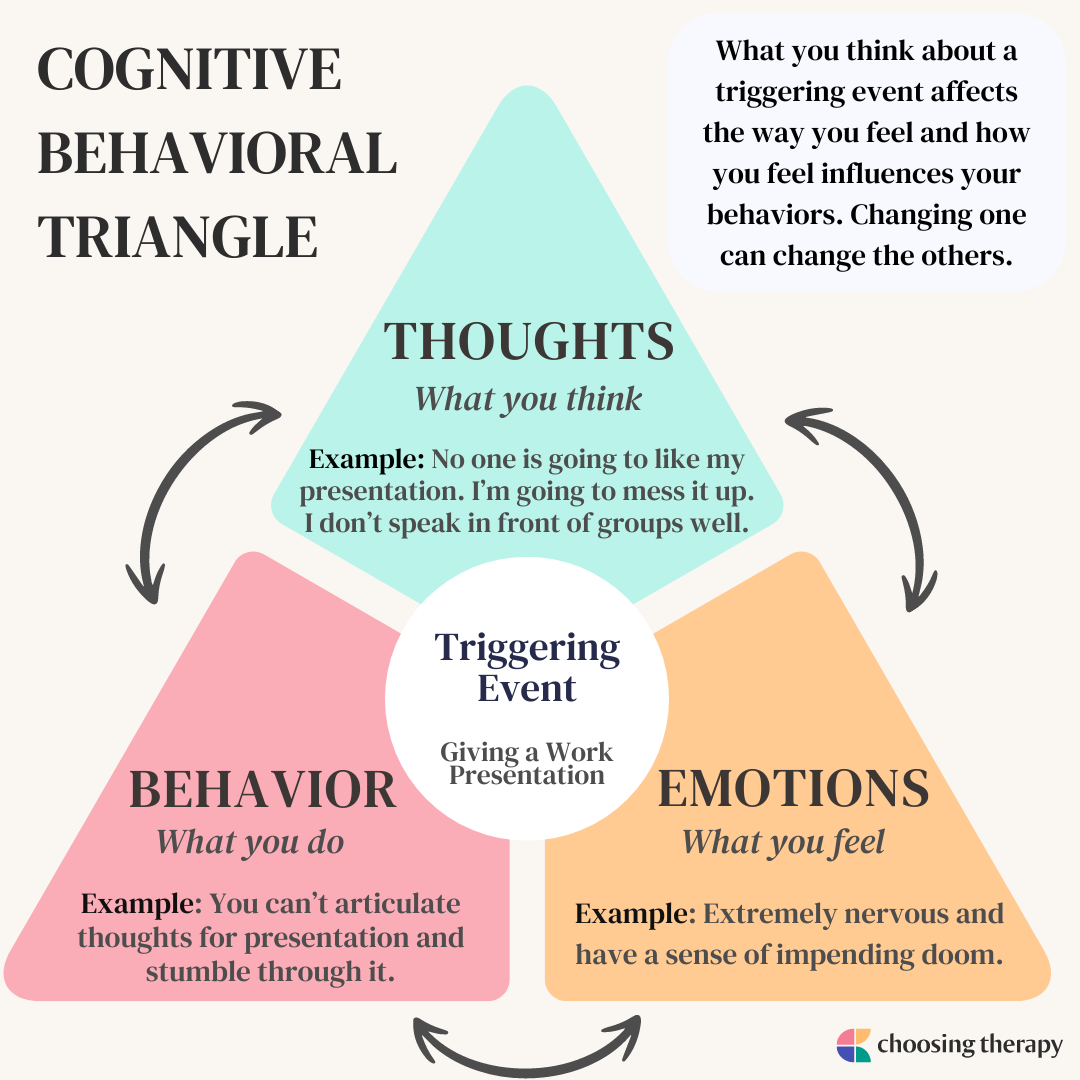Counselling for anxiety disorder available virtually and in-person near you
Counselling for anxiety disorder available virtually and in-person near you
Blog Article
Exploring Different Techniques in Coaching for Anxiety Problem for Long Lasting Modification
When tackling anxiousness conditions, it's important to explore a selection of counseling strategies. Each technique provides one-of-a-kind insights and tools to assist you manage your symptoms efficiently. You might discover that incorporating strategies can generate the most effective outcomes. However, understanding the subtleties of these techniques is crucial to promoting long-term modification. What if the appropriate mix could release a brand-new degree of emotional wellness for you?
Understanding Anxiety Problems: A Brief Review
Anxiety conditions, which impact countless individuals worldwide, can significantly impact every day life. You could experience frustrating feelings of anxiety or worry that seem irrepressible. These sensations can cause physical symptoms like a racing heart, sweating, and even wooziness. Usual sorts of anxiousness disorders include generalised anxiousness condition, panic attack, and social anxiousness condition. Each has one-of-a-kind indicators, however they all share a propensity to disrupt your routine and relationships.Understanding the origin of your stress and anxiety is vital. It might come from genes, mind chemistry, or life experiences. Identifying your triggers can aid you manage your responses much better. It is necessary to bear in mind that you're not the only one in this battle. Many individuals encounter comparable obstacles, and looking for help is a strong action towards sensation better. By learning more about anxiousness problems, you're currently on the course to understanding and handling your condition a lot more properly.
Cognitive-Behavioral Therapy: Testing Unfavorable Idea Patterns
In Cognitive-Behavioral Treatment, you'll start by determining the negative idea activates that add to your stress and anxiety. You'll function on replacing them with even more positive alternatives as soon as you recognize these ideas. Together, you'll construct reliable coping strategies to help handle your stress and anxiety in day-to-day situations.
Recognizing Negative Thought Triggers

When you run into moments of distress, acknowledging the details triggers behind your adverse thoughts can be essential in handling anxiousness. Start by paying interest to scenarios that provoke feelings of fear or concern. Is it a crowded space, an upcoming deadline, or a discussion with certain individuals? Write down these circumstances in a journal. This will certainly help you recognize patterns in your thinking. Likewise, notification physical experiences that accompany your unfavorable thoughts, like an auto racing heart or rigidity in your chest. By pinpointing these triggers, you obtain understanding right into what's sustaining your anxiousness. Comprehending these connections is the initial step in challenging those ideas and eventually regaining control over your emotional responses.
Changing Thoughts With Positives
Challenging negative thought patterns is a vital action in changing your way of thinking and lowering anxiousness. You might often discover yourself caught in cycles of self-doubt or disastrous thinking. Rather than letting these thoughts dictate your sensations, technique changing them with positive affirmations or sensible choices. When you think, "I can't manage this," change it to, "I can handle challenges one action at a time." This basic modification can substantially impact your mood. Frequently recognizing and responding to these adverse ideas assists produce a healthier interior discussion. Bear in mind, it takes time and initiative, but continually practicing this strategy can bring about long-term change, empowering you to deal with stress and anxiety with restored self-confidence and resilience.
Building Coping Techniques With Each Other
Changing adverse thoughts is just the beginning of managing anxiety properly. To produce long lasting change, you need to develop coping approaches that equip you. Cognitive-Behavioral Treatment (CBT) helps you identify and challenge those unhelpful thought patterns. Together, you and your counselor can discover exactly how these thoughts influence your feelings and behaviors.Start by developing sensible methods, like journaling or mindfulness workouts, that enable you to challenge anxiousness head-on. When you encounter your anxieties progressively, you'll find out to respond in a different way.

Mindfulness and Acceptance-Based Approaches: Cultivating Present-Moment Awareness
As you browse the complexities of anxiety, incorporating mindfulness and acceptance-based strategies can considerably enhance your capacity to grow present-moment awareness. By concentrating on the right here and currently, you'll discover that you can observe your thoughts and sensations without judgment (Counseling services for anxiety). This method helps you acknowledge your anxiety without really feeling overwhelmed by it.Engaging in mindfulness workouts, such as deep breathing, body scans, or directed meditations, allows you to ground on your own in your present experience. Acceptance-based methods urge you to embrace your emotions rather than deal with against them. When you accept your sensations, they shed their power over you.Incorporating these practices into your daily routine can transform just how you reply to anxiety. You'll create durability and find out to navigate difficult situations with greater ease. Inevitably, cultivating present-moment awareness lays the foundation for lasting adjustment, encouraging you to lead an extra fulfilling life
Exposure Treatment: Challenging Anxieties Progressively
Direct exposure therapy aids you confront your fears in a gradual way, making it less overwhelming. You'll learn methods to face anxiety-provoking situations detailed, while additionally constructing coping approaches to handle your responses. This strategy encourages you to take control and decrease stress and anxiety gradually.
Progressive Direct Exposure Strategies

When dealing with anxiousness, gradually facing your fears can be an effective method to restore control. This technique, referred to as steady direct exposure, involves gradually subjecting yourself to the scenarios or items that cause your stress and anxiety. Start with less intimidating scenarios and progressively function your means approximately even more tough ones. For instance, if you hesitate of public talking, you might start by speaking in front of a mirror, after that progress to sharing thoughts with a good friend, and at some point resolve a small team. Each action helps desensitize you to the anxiety, building your self-confidence over time. Keep in mind, it's important to rate on your own and commemorate small victories as you relocate with this procedure, reinforcing your ability to handle anxiousness effectively.
Structure Coping Methods
Structure reliable coping approaches is important for handling stress and anxiety, specifically as you challenge your concerns gradually - Counseling services for anxiety. One effective technique is direct exposure therapy, where you start by facing your worries in a controlled way. Begin with less intimidating situations and slowly work your way as much as more difficult situations. This progressive exposure helps desensitize you to anxiety triggers, making them less overwhelming.Incorporate leisure strategies, such as deep breathing or mindfulness, to relax your mind during direct exposure. Track your progression, commemorating little success in the process to enhance your self-confidence. Remember, it's okay to take your time; the goal isn't excellence however constant enhancement. By developing these techniques, you'll empower on your own to browse stress and anxiety and accept life much more fully
Psychodynamic Treatment: Discovering Origin of Anxiousness
Psychodynamic therapy checks out the unconscious mind, revealing the origin triggers of your stress and anxiety. By analyzing your ideas, feelings, and previous experiences, this technique assists you uncover underlying problems and unsolved issues that may add to your present anxiousness. You'll collaborate with a therapist to check out youth experiences, partnerships, and psychological patterns that form your responses today.As you obtain understanding into these much deeper layers of your mind, you'll start to acknowledge how previous occasions affect your present behavior. This understanding can cause catharsis, allowing you to refine feelings you may have suppressed.Through the healing relationship, you can additionally determine protection devices that may have established in time, supplying a more clear course to change. Inevitably, psychodynamic therapy outfits you with the devices to resolve your anxiousness at its core, promoting enduring change in your psychological wellness.
Integrative and Holistic Strategies: Combining Techniques for Greater Efficacy
Incorporating various restorative strategies can enhance your trip towards handling anxiousness much more successfully. By combining aspects from cognitive-behavioral treatment, mindfulness techniques, and holistic strategies, you can produce a tailored technique that resolves your unique needs. You could use cognitive-behavioral techniques to test unfavorable idea patterns while integrating mindfulness workouts to ground yourself in the existing moment.Additionally, exploring holistic practices such as yoga or meditation can promote relaxation and reduce stress and anxiety signs. This mix enables you to establish higher self-awareness and resilience.Experimenting with these varied methods can assist you uncover what reverberates most with you. Remember, it's about finding a harmony that functions, instead than sticking to a single approach. This integrative method not just provides immediate relief however likewise cultivates long-lasting skills for managing anxiousness, equipping you to reclaim control over your life.
The Duty of Support Equipments: Building Durability Through Link
While it could appear that handling anxiety is a solitary journey, having a strong support system can play an important role in your strength. Bordering on your own with understanding close friends, household, or assistance groups develops a risk-free space where you can freely share your sensations and experiences. When you attach with others, you advise on your own that you're not alone in this struggle.These relationships offer inspiration and can give practical coping techniques that have actually helped others. It's additionally an opportunity to get perspective; close friends can assist you see situations in different ways, more info lowering sensations of isolation.Moreover, psychological assistance promotes a sense of belonging, which can significantly relieve stress and anxiety signs. By leaning on your support group, you can develop strength and take on difficulties much more efficiently. Remember, reaching out for aid signifies toughness, and it can make all the distinction in your journey toward managing stress and anxiety.
Often Asked Inquiries
What Are the Common Signs of Stress And Anxiety Problems?
You could experience uneasyness, fatigue, difficulty concentrating, irritation, muscle mass stress, and rest disruptions. Physical signs can include fast heart beat, sweating, and shivering. Identifying these signs early can help you seek appropriate assistance and therapy.
The Length Of Time Does Treatment Generally Last for Anxiousness Disorders?
Therapy for anxiety conditions normally lasts anywhere from a couple of weeks to a number of months. It really relies on your specific requirements, progression, and the techniques your therapist uses to assist you manage your anxiety properly.
Can Drug Be Made Use Of Along With Therapy for Anxiousness?
Yes, medication can absolutely be used alongside therapy for anxiety. Combining both techniques often enhances therapy efficiency, helping you take care of symptoms while discovering underlying concerns with counseling (Counseling services for anxiety). Constantly consult your doctor for tailored advice
Are There Self-Help Methods for Taking Care Of Anxiety?
Yes, there are several self-help approaches for managing anxiety. You can practice mindfulness, participate in regular workout, maintain a well balanced diet plan, develop a routine, and make use of deep breathing methods to help reduce anxiety symptoms efficiently.
Just how Do I Know if I Required Professional Aid for Anxiousness?

Report this page